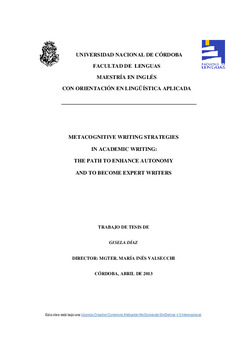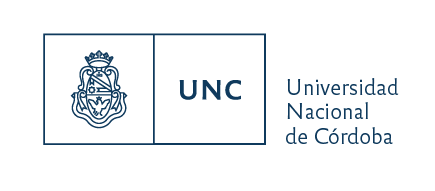| dc.description.abstract | Learners’ effective and conscious use of metacognitive writing strategies (MWS) has proved to be beneficial in enhancing self-directed and autonomous learning, and also, in some cases, in improving their writing performance. Due to the fact that not every learner is equipped with a wide repertoire of writing strategies, researchers in the area of second language writing have stressed the importance of explicitly teaching strategies to students. Given the relevance of these issues, the aims of this study were two-fold: (a) to implement a strategies-based instruction on the MWS of Planning, Monitoring and Evaluating integrated to the regular classes of the subject English Language II in an English Teacher Training College in Argentina; and (b) to study its effects on the students’ strategy deployment and on their writing performance. In order to accomplish these purposes, a quasi-experimental design was adopted following a single group pre-test + post-test + delayed post test design; and data were collected by means of self-report questionnaires, diary entry tasks, a survey, and writing tests. Findings show that at post instruction the participants began employing a greater number of Planning, Monitoring, and Evaluating strategies, and they were able to focus on both global and local writing features when monitoring and evaluating their compositions. At post instruction, the participants of this study seemed to have acquired some of the aspects which Bereiter and Scardamalia (1987) consider to be characteristic of expert writers, namely devoting considerable time to planning, considering the goal of the text, and attending to several aspects such as content, form, audience, and organization. In addition, results obtained from the delayed post test indicated that this change in strategy deployment was sustained over the medium-term. In addition, the participants reported having improved their overall performance as writers due to the strategy instruction received, and also that the use of the strategies learned had helped them identify and check different kinds of mistakes. Thus, these results are in line to those studies which ascertain that strategies can be taught, and that the deployment of metacognitive writing strategies allows learners to have major control over their learning process. Another finding obtained in this study was that although the participants became more strategic and even felt they had become better writers, the
scores obtained for the first drafts of their compositions seemed to suggest that the students’ writing performance did not improve at post instruction. Nevertheless, further research would be needed to investigate whether the participants’ perceived improvement in their compositions did correlate with a better performance in their second and third drafts of their compositions. | es |





